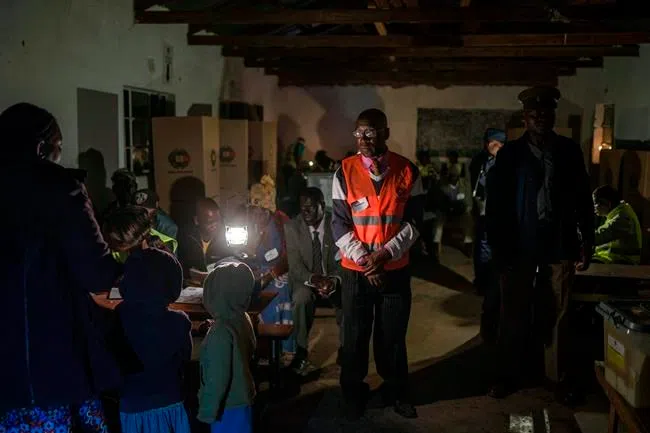
Zimbabwe says election is clean; opposition is skeptical
HARARE, Zimbabwe — Zimbabwe’s election took an uneasy turn Tuesday when the opposition alleged results were not posted outside one-fifth of polling stations as required by law, and the electoral commission said the impatient nation would have to wait longer to learn who will be its next president.
The government of President Emmerson Mnangagwa, meanwhile, suggested the main opposition leader, Nelson Chamisa, and his supporters were inciting “violence” by declaring he had won Monday’s election even though only parliamentary returns have been announced.
“Let me also warn such individuals and groups that no one is above the law,” Home Affairs Minister Obert Mpofu said. Security forces “will remain on high alert and continue to monitor the security situation in the country.”
Zimbabweans desperately hope Monday’s peaceful vote will lift them out of economic and political stagnation after decades of Robert Mugabe’s rule, but the country is haunted by a history of electoral violence and manipulation that means trust is scarce, despite today’s freer environment.
